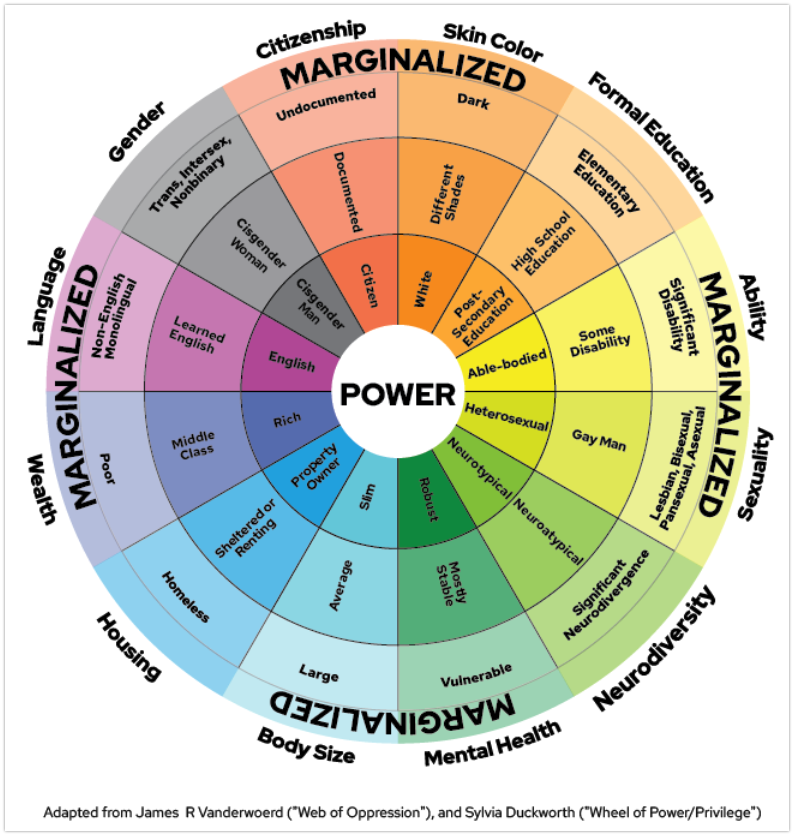The Wheel of Power and Privilege: A Guide to Understanding Identity at Work
By Viva Asmelash and Michael Gregor
How are you close to the center of social power, and how are you close to the margins?
Your social identities (for example, race, gender, and sexual orientation) and formal authority (the power you have because of your job) impact everything you do in the professional world. Before any interaction at work, you must understand the implications of these two things. We frequently use this Wheel of Power and Privilege to help.
The further you are from the center, the more marginalized, less heard, or safe you might be within social structures and workplaces. For example, in its Framework for Workplace Mental Health and Wellbeing, the U.S. Surgeon General’s Office highlights that women and people of color are more likely to experience threats to both their physical and psychological safety at work.
The closer you are to the center, the more critical it is to be aware of that advantage and consider how you will intentionally use it. When you ground yourself in your social identity (including your degree of advantage in a specific situation) before making a decision, you can lead in a way that's best for those impacted by that decision. You must understand your own identities to build equitable systems effectively.
When you are closer to social power, it’s much easier to forget or ignore it because our society does not ask us to look at our advantages and privileges. However, we have a special responsibility to be conscious of our social identities and step up to create a safe environment for all, especially for those who are closer to the “marginalized" outside of this wheel. We work closely with a wide array of clients to find strategies that are a good fit for their organization.
We leverage this tool in our foundational education offering: “Exploring Personal Identity and Unearned Privilege.”
When organizations are just starting their inclusive employee education journeys, we often recommend this as a first step, even before a lesson on Unconscious Bias. The “Exploring Personal Identity and Unearned Privilege” workshop provides groups of all backgrounds with a baseline concept of what identity means and how unearned privilege and social power exist on a spectrum—rather than being something we simply have or don’t have. This knowledge helps people see their place in the larger story of equity and inclusion goals on their teams.
The graphic above is a conversation tool but not a comprehensive representation of every person's situation, experience, or characteristics. We are more than our social identities and have diverse experiences that can’t be represented in a single image—it’s important to remember that we’re each born with inherent power and value.
Ready to deepen your team’s awareness and skill around power and privilege? We offer an introductory workshop on emotional intelligence, understanding one’s own positionality, and what that means in the workplace. Complete the form below and we’ll get in touch.

